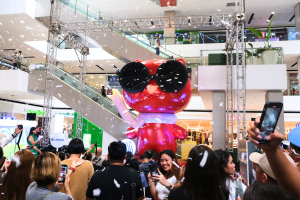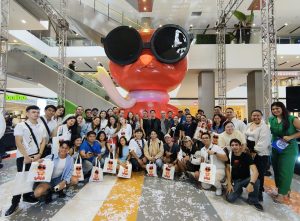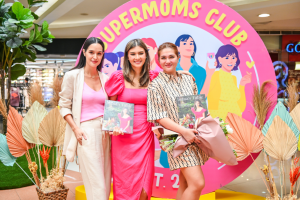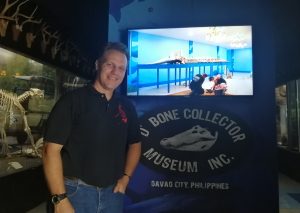
Saving mother nature is beyond color and race, after all, there is no home other than earth.

Darrell Blatchley, an American museum curator who migrated in the Philippines some 24 years ago, proves the statement true as his advocacy in cleaning the coastal areas of Davao City consistently served as call to Davaoeños to preserve the city’s marine ecology.
Recently, Blatchley’s advocacy caught the attention of an international organization, which for him, will help amplify his voice in calling for everyone to take part in saving nature.
His advocacy in preserving the environment and marine ecology has been declared first prize winner for the Plastic Initiative Award by the United Nations Educational, Scientific and Cultural Organization (UNESCO), a specialized agency of the United Nations.
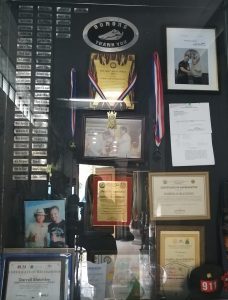
The Plastic Initiative Award highlights the growing momentum to implement sustainable plastic-management strategies and prevent plastic waste from entering the marine environment.
Blatchley, as UNESCO describes, is “the owner of the D’ Bone Collector Museum, which displays animal skeletons in its collection, rais(es) awareness on the effects of plastic in the environment and fighting #PlasticPollution, including by performing autopsies on marine animals that have been harmed by ingesting rubbish.”
He is set to receive the award on September 27 and participate in a fundraising event where proceeds will be given to UNESCO.
Blatchley founded and established the said museum, the first of its kind ever built in the country. It is located in the coastal community of Bucana where his parents do their ministry work with the urban poor. The three-storey museum houses assorted collection of skeletons of marine species, including rare whales that were found dead in the shores of Davao region. Many of the bone specimens he said were from marine species that have ingested some plastic materials that lead to their untimely death.
The second prize went to Bhutan with the project name Trashtag Bhutan and Plastic Ban Advocacy. In the project 121 schools in Bhutan have created a nationwide network under the theme #unityforpositivechange and cleaned up more than 5,000 bags of waste in 121 communities while advocating for the enforcement of a plastic ban.
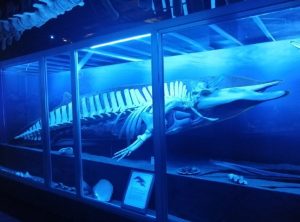
“The fact that we are recognized, that we are doing the best for Asia, for us it is very humbling, and it’s really an honor,” Blatchley said in an interview.
For a foreigner who committed his life to clean the ocean, Blatchley said he has so much love for the Philippines and he could not allow its precious resources be destructed from the lack of action among Filipinos.
With an international award now, Blatchley believes that a louder voice also means more credibility in speaking about saving marine ecology, and the environment as a whole.
According to Blatchley, the passage of laws that provide for the care of the environment is not enough, instead, the government should work more to enforce the laws down to the peripheries.
“The majority of the Filipinos are poor. Majority affects the majority,” said Blatchley.
Aside from his musuem work, Blatchley goes around the city’s coast to call for the barangay local government and city government, as well as the residents, on the problem of plastic in the city.
For Blatchley, solving plastic issues in the city, “all starts with discipline.”
“We don’t need more laws. We already have the laws. What we need is enforcement,” he said.
Blatchley, who is also a Datu Bago awardee, the highest recognition, bestowed by the city government to a civilian for exemplary achievement or contribution to the society, said he will, now more than ever, pursue his advocacy in leading Davaoeños and everyone else to care for the environment.
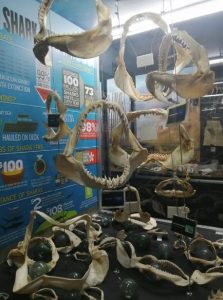
“There maybe a 2% who would say I am a nuisance for always exposing the plastic issues in the city but I believe in the 98% who understands why I am doing this. This is for the benefit of the country,” Blatchley said.
“This UNESCO award is recognized by all of Asia that what we are doing is not just for Davao, not just for the Philippines, but for all of Asia. Our neighboring countries have recognized that they also have to work (for our environment),” Blatchley added.
His award, will give him more platform and credibility to his works.
“The fact that it was an international council who looked at the nominees, and recognized that what we are doing is the best that benefits the community and Asia as a whole, of course that is really an empowerment,” he added.
By Dennis Jay C. Santos and Julianne A. Suarez

